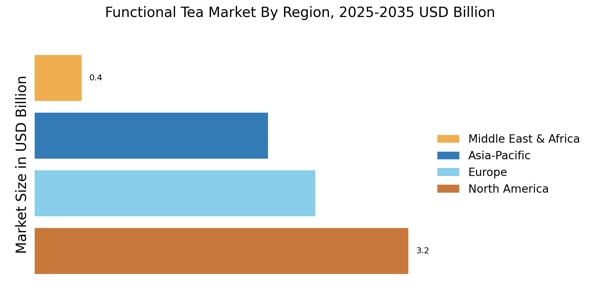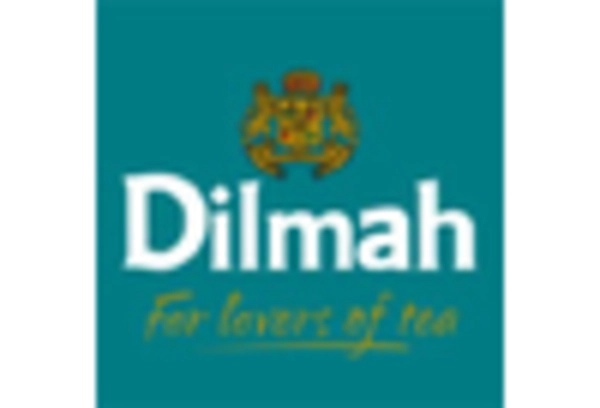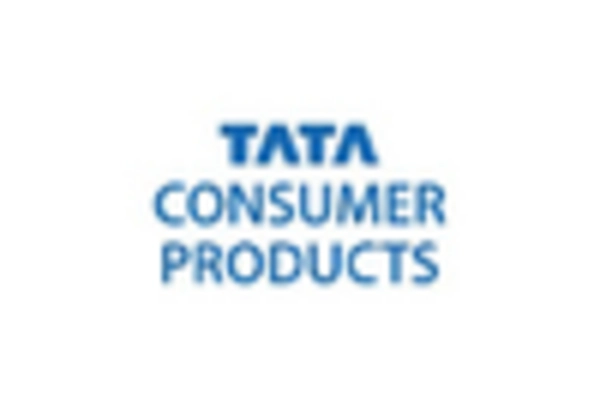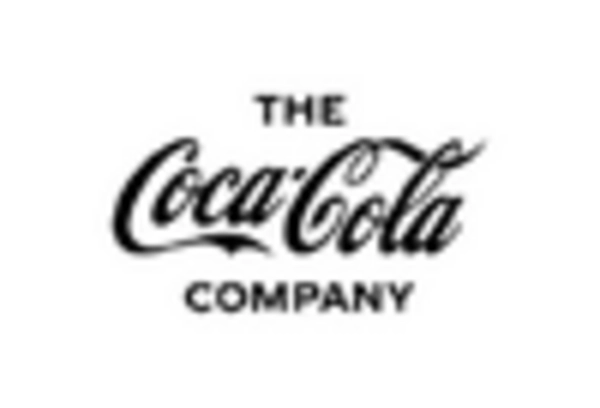Innovative Flavor Profiles
Innovation in flavor profiles is becoming increasingly crucial within the Functional Tea Market. As consumers become more adventurous in their taste preferences, brands are responding by developing unique blends that combine traditional tea with exotic ingredients. This trend not only enhances the sensory experience but also aligns with the health benefits associated with various botanicals. For instance, teas infused with adaptogens or superfoods are gaining traction, appealing to a demographic that values both taste and wellness. The introduction of these innovative flavors could potentially attract a broader audience, thereby expanding the market. The Functional Tea Market may see a notable increase in sales as these new offerings resonate with consumers looking for both enjoyment and health benefits in their beverage choices.
Rising Health Consciousness
The increasing awareness of health and wellness among consumers appears to be a primary driver for the Functional Tea Market. As individuals seek healthier lifestyle choices, the demand for functional teas, which offer specific health benefits, is likely to rise. According to recent data, the market for functional beverages, including teas, is projected to grow at a compound annual growth rate of approximately 8% over the next five years. This trend suggests that consumers are gravitating towards products that not only quench thirst but also contribute positively to their health. The Functional Tea Market is thus positioned to benefit from this shift, as more people incorporate these beverages into their daily routines, seeking alternatives to sugary drinks and traditional teas.
Sustainability and Ethical Sourcing
Sustainability and ethical sourcing practices are increasingly influencing consumer purchasing decisions within the Functional Tea Market. As awareness of environmental issues grows, consumers are more inclined to support brands that prioritize sustainable practices. This includes sourcing tea leaves from farms that employ eco-friendly methods and fair trade practices. Recent surveys indicate that a significant percentage of consumers are willing to pay a premium for products that are sustainably sourced. This trend suggests that companies in the Functional Tea Market that adopt transparent and responsible sourcing strategies may gain a competitive edge. By aligning with consumer values, these brands can foster loyalty and attract environmentally conscious buyers, potentially leading to increased market share.
Increased Availability of Functional Teas
The increased availability of functional teas in various retail channels is a notable driver for the Functional Tea Market. As more retailers recognize the demand for health-oriented products, functional teas are becoming more accessible to consumers. This includes placement in supermarkets, health food stores, and online platforms, making it easier for consumers to find and purchase these products. Recent statistics indicate that the retail distribution of functional beverages has expanded significantly, with a marked increase in shelf space dedicated to these items. This trend suggests that as functional teas become more readily available, consumer adoption is likely to rise. The Functional Tea Market stands to benefit from this enhanced accessibility, as it encourages trial and repeat purchases among health-conscious consumers.
Digital Marketing and Social Media Influence
The rise of digital marketing and social media platforms is reshaping the landscape of the Functional Tea Market. Brands are leveraging these channels to engage with consumers, share health benefits, and promote new products. Social media influencers play a pivotal role in this dynamic, often showcasing functional teas as part of a healthy lifestyle. This strategy not only enhances brand visibility but also builds community around health-conscious choices. Data suggests that brands utilizing social media effectively can experience a significant boost in sales, as consumers are more likely to trust recommendations from influencers. Consequently, the Functional Tea Market is likely to see continued growth as companies invest in digital marketing strategies to reach and engage their target audiences.


















